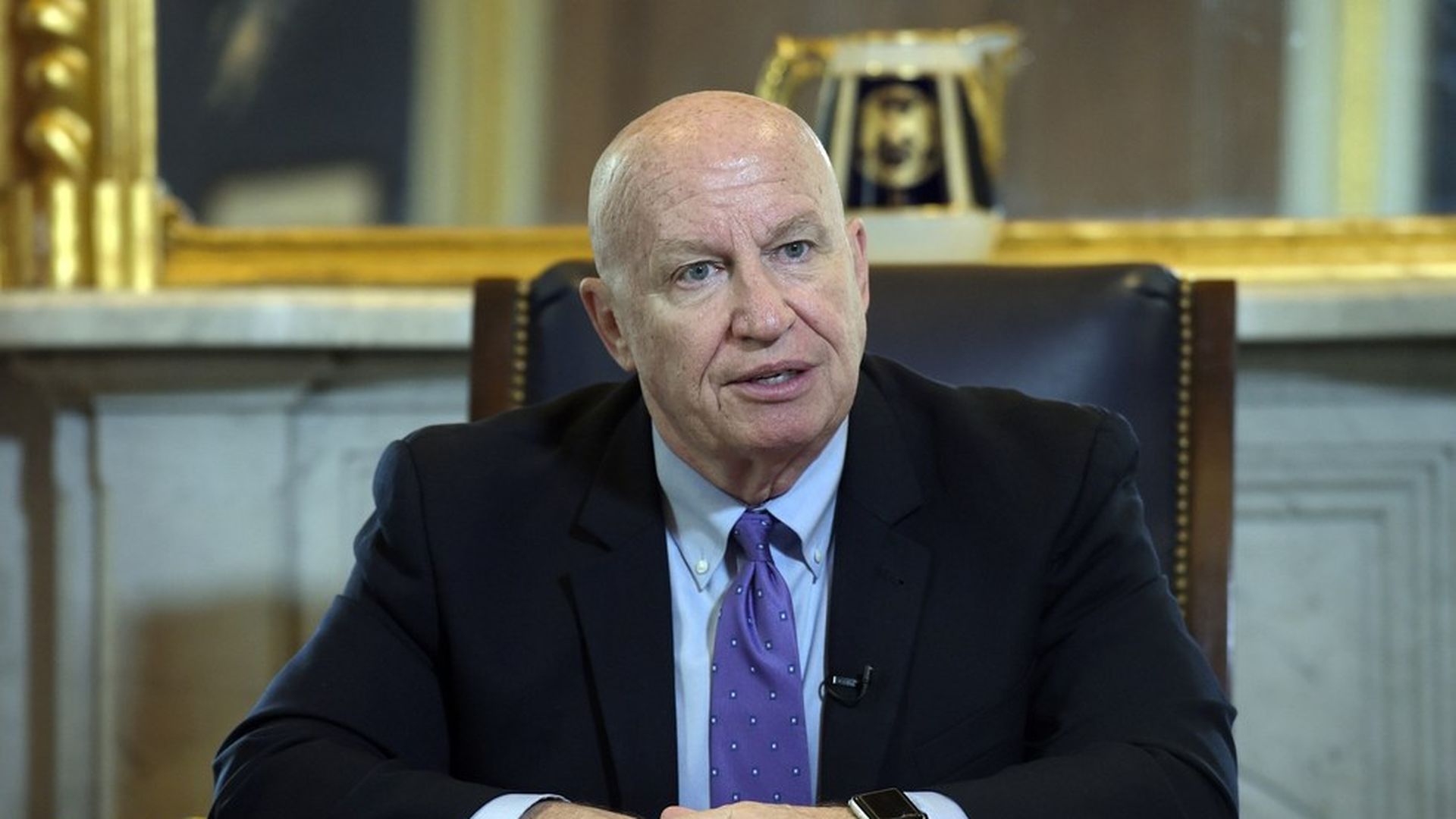
(Susan Walsh / AP)
House Ways and Means Chairman Kevin Brady says that while a lot of big decisions about Obamacare repeal and replace have yet to be made, the vast majority of legislative and regulatory changes need to be made this year to make sure the transition to a new health care system goes smoothly.
He's confident that the Republican approach will help lower health care costs. They're also looking into creating regional health plans and encouraging insurers to offer plans in every state. But among the several big decisions yet to be made are what to do about Obamacare's taxes and — relatedly — how to pay for the replacement, or the exact timetable for legislative action and implementation.
Here's a slightly condensed version of my interview on Tuesday.
You have talked about a "health care backpack." What policies are necessary to ensure people can get comparable coverage if they move from say, Maine to California?
"First, you need a very strong and robust insurance market in each state, directed by those states and approved by those states...Secondly, you need the ability to finance the plan in your backpack." One way to make insurance affordable on the individual market is to extend the employer tax break to individuals.
But does there need to be any kind of federal regulation to make sure states offer something that's easy to switch from one place to another?
"We are having discussions with them on state compacts that would allow them to create broader regional plans that go across state lines...We'll also have discussions with insurance providers, encourage them to create innovative plans in every state in the country."
Obamacare took five years from the first congressional debates to full implementation. What do you see as your timeline between passage and implementation, and how long until a full transition?
"No decisions have been made yet on when transition will be complete. Clearly, House and Senate Republicans at the retreat indicated that we not rush, that we make sure we get it right...but all that requires action in 2017. So the bulk of the changes in law and the bulk of regulatory changes must occur this year."
Can you guarantee that health care will be more affordable than it is under the Affordable Care Act, taking into account both premiums and out of pocket spending and deductibles?
Broader choices and more competition will lower health care costs. "And if we get the incentives right, people will have the incentive to keep continuous coverage through their life so that if they get that deadly disease, a very expensive treatment that's requiring of surgery, that they'll continue to have affordable health care."
I talked to Sen. Chuck Grassley — former Finance Committee chairman — and he said he doesn't think that Republicans can replace Obamacare without either keeping some of the existing taxes, or new taxes. Do you agree and if not, what other alternatives do you have to pay for it?
"Some lawmakers want to keep all or some of the ACA taxes. That is part of the discussion Republicans are having. Personally, I don't want any more small businesses or patients or medical device makers to suffer under the burden of Obamacare taxes any longer. But those discussions are being held."
The Congressional Budget Office put out a report saying that even if a replacement comes in two years, if the individual mandate is repealed in the interim, 18 million people will lose their coverage. How do you solve that individual mandate issue?
"I think that is a false analysis...I think those numbers will look much different once the replacement laws are in effect and the regulatory changes are made to re-establish a market and provide more flexibility than we have today."
If the new coverage isn't as extensive or as comprehensive as under the Affordable Care Act, how do you deal with the uncompensated care burden on hospitals?
"I think emergency room visits have continued to increase because the Affordable Care Act was not affordable. People could not afford the out-of-pocket costs." With more choices of health care plans, people might have the right incentives to get medical care in the most cost-effective places.
Can you say that hospitals will not be required to shoulder any more uncompensated care costs through your plan?
"No decision's been made on the final design yet, but we're interested in the hospitals' opinions, clearly, as we go forward."
